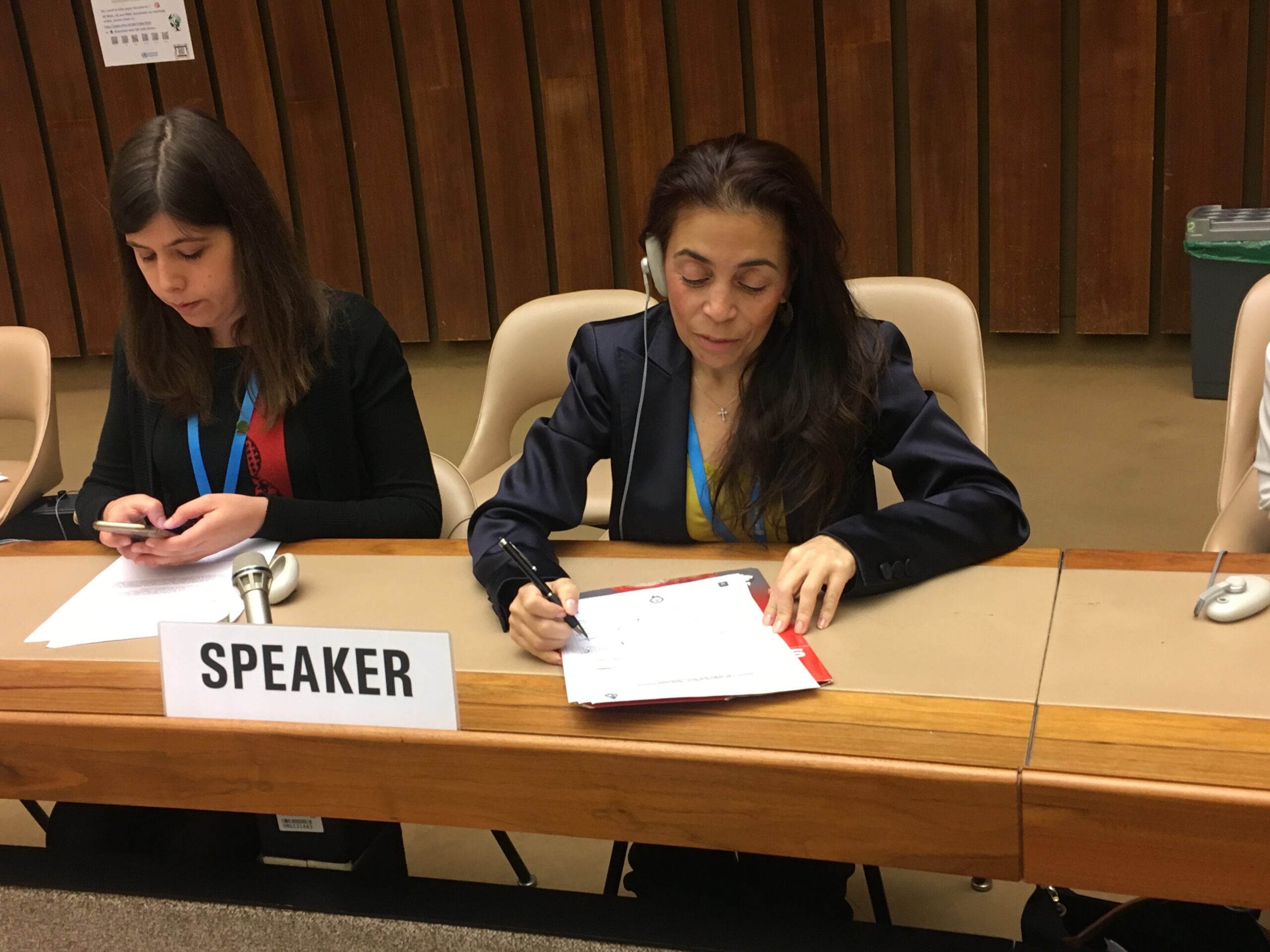Among the many that have been affected by medical restrictions resulting from the COVID-19 outbreak, those needing frequent blood transfusions may face the most risk. Blood banks are struggling to provide for their regularly scheduled transfusions, while others fear for their health and safety as they make their way to the hospital for life-saving transfusions. Together, not only can we prevent the spread of Coronavirus, we can also take action in saving the lives of those dependent on healthy blood.
Patients Weigh Transfusion Needs with Pandemic Risks
Unable to go more than 14 days without receiving two pints of blood, yet terrified at the thought of exposing her weakened immune system to infection, Thalassemia patient Maria Hadjidemetriou is working to maintain her “eternal optimist” attitude. Maria serves on the board of directors for Cooley’s Anemia Foundation and as an expert advisor for The Thalassemia International Federation. While fearing for her own safety, Maria feels empathy towards other Thalassemia patients who, with regular transfusions and treatments, have been able to normalize many of their symptoms. She states “I feel for these patients, they had a good life. Now a lot of us don’t even know if it’s even safe to go to the hospital and receive these life-saving treatments.”

Because her disease requires regular transfusions of oxygen-rich blood, Maria’s organs are now overloaded with iron. This forced Maria to have her spleen removed, thus making her hyper-sensitive to any kind of infection. Maria is “still shocked at how directly this virus has affected me,” thinking of her global Thalassemia community members who are facing the same issues but have less access to resources. As she schedules her next transfusion appointment, Maria is wary of what she may be exposing herself to, and the possibility that her life-saving blood may not be available the next time she goes in for a transfusion.
As leaving home becomes increasingly dangerous for those with weakened immune systems, Sam Heckle, a student athlete at Syracuse University and Uplifting Athletes chapter president, comments on how COVID-19 precautions have affected his regular plasma treatments. As someone with the rare blood type AB positive, “the plasma therapy I get is pretty selective. They have to set everything up in advance and my life completely relies on it.” As an extra precaution, Sam’s doctors have recommended that he reduce the frequency of his treatments to every three weeks instead of every two, to reduce exposure to the hospital and prevent infection. Though Sam continues to self-quarantine and take precautions to protect himself from the virus, not receiving his regular plasma treatments poses the most dangerous threat of all.
Without the treatment, Sam’s platelet count could drop far below normal levels, which usually range between 150,000 to 450,000, making him more susceptible to infections as seemingly harmless as the common cold. Having contracted H1N1, or swine flu, during his childhood this same way, Sam’s platelet levels dropped to levels between 3,000 and 4,000. As a high-risk congenital thrombotic thrombocytopenic purpura (TTP) patient, Sam asks people to “be unselfish and stay at home. We will all be affected by this in some way, whether we like it or not, so just stay home.”
Blood Donors Needed to Maintain Supply
Since the outbreak of COVID-19 and its subsequent Stay at Home and distancing orders were enforced, blood banks have begun to experience a global shortage of donations. Many organized blood drives began shutting down as colleges and places of business began pivoting to be in compliance with prevention measures. This global shortage ironically widens the demographic of at-risk individuals to include those reliant on regular blood transfusions. Though growing awareness surrounding this issue has briefly caused blood supplies to become stable, Michele Corbett of the San Diego Blood Bank is “not certain people will keep coming out at this pace.” Like much of the information surrounding COVID-19, the long term needs of blood banks are unclear, though Michele worries that “blood has a shelf life and we can only collect so much at one time.” While this brief stabilization means vital transfusions for those in need can continue, global efforts to raise awareness and donate blood is critical for maintaining the health of these patients.
How to Help
Unlike many of the recommended precautions being taken to help those medically at risk, donating blood is an actionable and specific way to save those who are most vulnerable. Patients are being turned away from hospitals due to blood shortages around the world. Regardless of what country you live in, those who are healthy and looking for ways to help beyond staying inside and avoiding contact can help people like Maria and Sam receive their essential transfusions and platelet treatments. More information on opportunities in your area and scheduling an appointment can be found online. The only way we can protect the vulnerable is by working together, and each of us has the power to save a life.

Stay Connected
Sign up for updates straight to your inbox.
